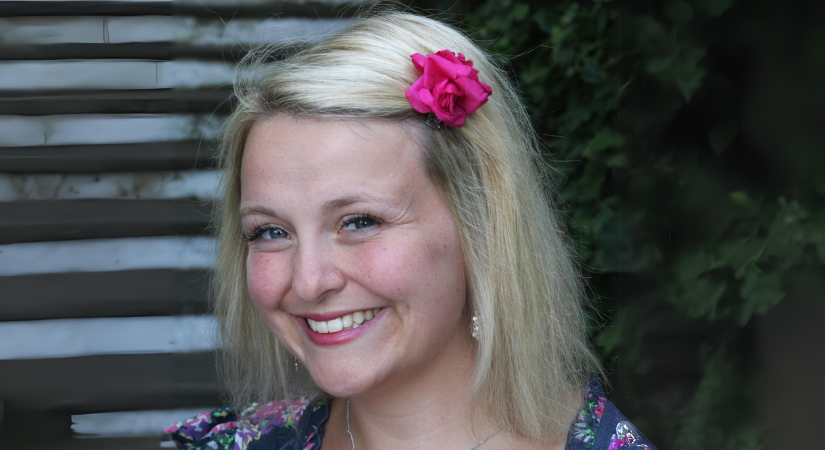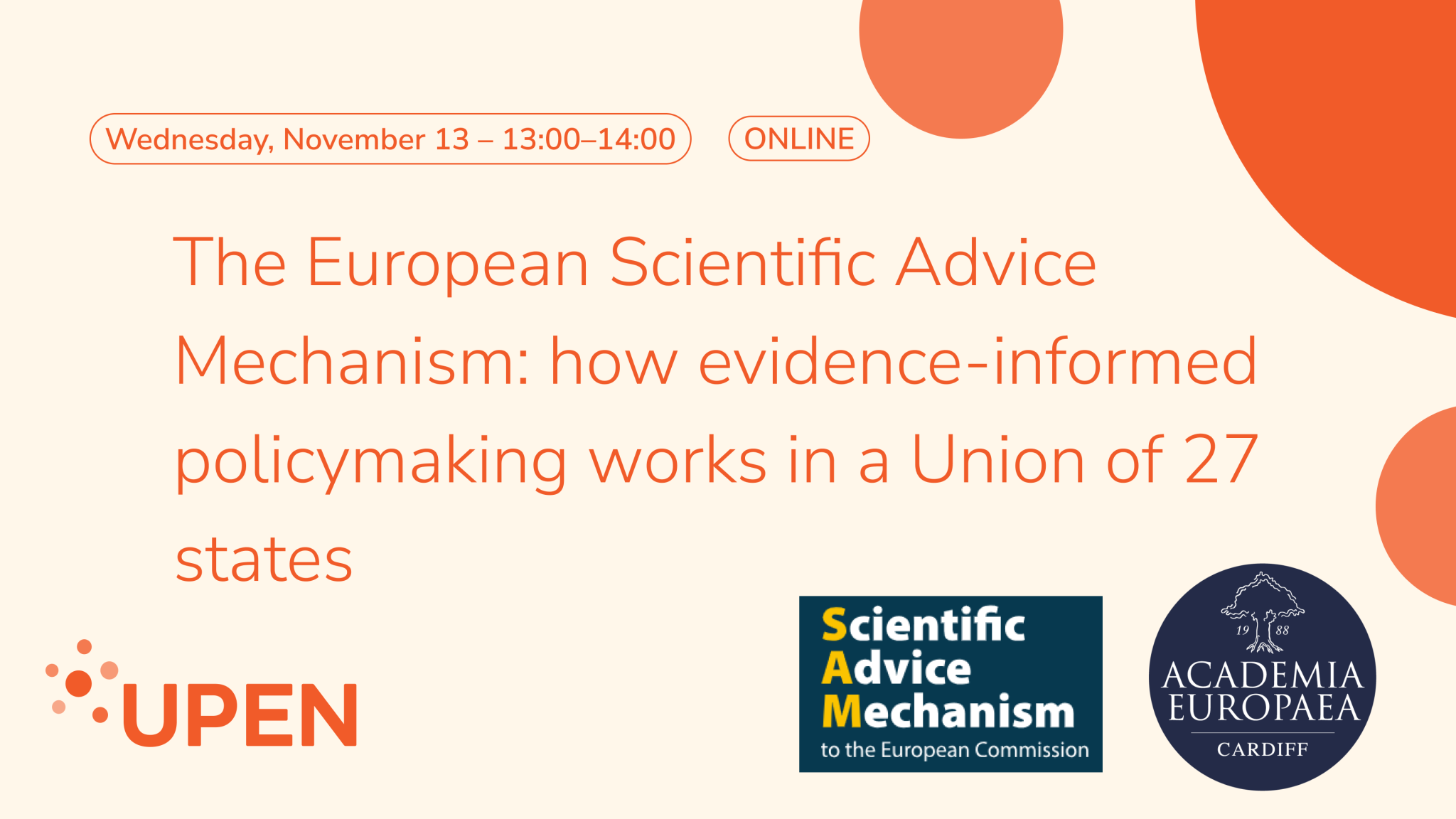The impact of arts and humanities on public policy: An Interview with Arlene Holmes-Henderson#
In this interview, Arlene Holmes-Henderson MAE explores the process that led to a new publication highlighting real-world examples of how arts and humanities research impacts public policy.
Read the interview#
A new publication, Arts and Humanities Research and Public Policy: 21 Case Studies of Impact captures the experiences of academic researchers at various career stages and in diverse institutions across the UK, providing insight into the policy engagement process for those working in arts and humanities disciplines. Originating from discussions at the Academia Europaea Cardiff Hub event, Strengthening EU-UK Research Collaboration
captures the experiences of academic researchers at various career stages and in diverse institutions across the UK, providing insight into the policy engagement process for those working in arts and humanities disciplines. Originating from discussions at the Academia Europaea Cardiff Hub event, Strengthening EU-UK Research Collaboration , it provides a comprehensive collection of 21 case studies across 14 disciplinary areas. The project was led by Professor Arlene Holmes-Henderson MAE and Laidlaw Scholar Luke Sewell, both of Durham University. Professor Holmes-Henderson is Vice-Chair of the Universities Policy Engagement Network
, it provides a comprehensive collection of 21 case studies across 14 disciplinary areas. The project was led by Professor Arlene Holmes-Henderson MAE and Laidlaw Scholar Luke Sewell, both of Durham University. Professor Holmes-Henderson is Vice-Chair of the Universities Policy Engagement Network (UPEN) and holds a joint Chair in Classics Education and Public Policy. She was elected as member of the Classics and Oriental Studies section of Academia Europaea in 2024.
(UPEN) and holds a joint Chair in Classics Education and Public Policy. She was elected as member of the Classics and Oriental Studies section of Academia Europaea in 2024.
Congratulations on your election as an MAE. What does this recognition mean to you personally and professionally?
Could you outline how the discussions at the “Strengthening EU-UK Research Collaboration” event inspired the development of this publication?
I raised the point that researchers (at all career stages) often struggle to know who, in their disciplinary area, is working with policymakers. The lack of role models and detailed case studies acts as a barrier to innovative academic-policy partnerships.
Of course, when you identify a challenge, you are also asked to suggest a solution and at the event someone suggested to me that there was a need to collate an evidence base of recent successful examples where arts and humanities had informed and influenced public policymaking. The task fell to me, and it took me 11 months from concept to delivery!”
What are the main messages you hope readers will gain regarding opportunities for arts and humanities research to inform and shape public policy?
Firstly, I hope that fellow arts and humanities academics at all career stages and in all institutions see that their evidence is valuable and relevant to contemporary policy discussions. This is not the exclusive realm of biomedical sciences or social sciences colleagues. Our research methods, findings and narratives are just as valuable as those from any other academic discipline. We must not start from a position of apology.
Secondly, I hope that members of the civil service and those who work in Parliament, devolved administrations and policy adjacent organisations are impressed and inspired by the breadth and depth of expertise which has shaped policy thinking. There remains a reluctance, in some corners of the policy community, to consider a diversity of evidence types. There is a tendency, sometimes, to seek advice from the ‘usual suspects’, a small group of advisors (usually senior academics at research-intensive universities in London and the south-east of London). This new publication demonstrates the benefits to both policymakers and researchers when a more inclusive approach to evidence gathering is adopted.”
What challenges do arts and humanities researchers encounter when seeking to influence policy, and how can this publication offer practical guidance in overcoming them?
i) How to get started?
ii) Differences in language and pace
iii) Balancing policy engagement alongside other professional commitments such as research and teaching.
The publication contains practical guidance from 21 researchers, at a range of career stages, in all types of institution spread widely across England and Wales. These academics have navigated a range of pathways to policy engagement success and are generous with their advice.
There are undeniable tensions between completing activities which ‘count’ towards academic promotion and progression. In too few institutions is policy engagement (or, for that matter, public engagement, or ‘impact’ or knowledge exchange) recognised as equal to these traditional academic markers of success. This causes colleagues (particularly early-career colleagues) to make very difficult decisions about whether they should ‘do’ policy engagement or not. If they don’t count towards their career development in a formal sense, it can (rightly) feel like a waste of time and/or a low priority when the opportunity arises to offer advice. This publication shows, however, that the policy engagement with research brokered by these arts and humanities colleagues has resulted in significant positive changes for society, the economy and public life. In my view, it is *clearly* the promotion criteria which need to change!”
In what ways do you hope this publication will inspire and shape future initiatives by arts and humanities researchers aiming to engage with policymakers?
ii) There is a shift within arts and humanities research culture to recognise policy engagement as a perfectly normal (and valuable) thing for colleagues to do within their academic workload models.
iii) Arts and humanities academics submit more applications for major external research grants which have a strong policy-engaged approach.
iv) Membership of the UPEN Arts and Humanities sub-committee expands to be the national forum for researchers and policymakers to meet and exchange knowledge.
v) I would like to see policy engagement with arts and humanities research taught as part of Masters and PhD programmes, building capacity across the academic ecosystem.”
Are there plans to develop further initiatives or resources to support this work?
About The Laidlaw Foundation#
The Laidlaw Foundation is a global non-profit dedicated to enriching lives through the transformative power of education, particularly focusing on individuals from underserved communities. Their initiatives span from nurseries to C-Suites across six continents, cultivating a diverse community dedicated to creating equitable opportunities.
is a global non-profit dedicated to enriching lives through the transformative power of education, particularly focusing on individuals from underserved communities. Their initiatives span from nurseries to C-Suites across six continents, cultivating a diverse community dedicated to creating equitable opportunities.
They are committed to developing leaders who embody excellence, act with integrity, and who are driven to solve the world’s most intractable problems. The Laidlaw Scholars Leadership and Research Programme invests in passionate undergraduate students to become ethical leaders in every sector and geography. They believe good leaders come in all shapes and sizes, from every type of background: the quiet and the gregarious, the scientist and the poet, the musician and the athlete. That’s why they invest in young people, providing the tools, support, and a global network to fuel their development. They provide fully funded scholarships which allow them to cultivate leadership skills, conduct meaningful research, and join a community of change-makers dedicated to creating a more just and equitable future.
About UPEN#
UPEN was set up in 2018 by a small number of universities. It now has more than 120 UK members. UPEN acts as a central space for academics, policy actors and professional services staff who undertake and support academic-policy engagement. UPEN champions academic-policy engagement to strengthen evidence-informed policymaking in the UK. UPEN’s founding purpose was to make it easier for UK governments and legislatures to communicate their needs and opportunities with researchers by providing a ‘one stop shop’ through which opportunities can be shared more easily. UPEN’s activities include a weekly UPEN newsletter, strategic projects led by Vice-Chairs and Sub-Committees, an events programme, and a regular blog, as well as members’ meetings and an annual conference. The co-chairs for UPEN currently are Andy Brown (University of Leeds), Sarah Chaytor (UCL), and Chris Hewson (University of York).
was set up in 2018 by a small number of universities. It now has more than 120 UK members. UPEN acts as a central space for academics, policy actors and professional services staff who undertake and support academic-policy engagement. UPEN champions academic-policy engagement to strengthen evidence-informed policymaking in the UK. UPEN’s founding purpose was to make it easier for UK governments and legislatures to communicate their needs and opportunities with researchers by providing a ‘one stop shop’ through which opportunities can be shared more easily. UPEN’s activities include a weekly UPEN newsletter, strategic projects led by Vice-Chairs and Sub-Committees, an events programme, and a regular blog, as well as members’ meetings and an annual conference. The co-chairs for UPEN currently are Andy Brown (University of Leeds), Sarah Chaytor (UCL), and Chris Hewson (University of York).
You may also be interested in this item#
The European Scientific Advice Mechanism: how evidence-informed policymaking works in a Union of 27 states#
Join the free, interactive webinar hosted by UPEN and partners, including Academia Europaea Cardiff Knowledge Hub , to learn how the European policymaking process is informed by scientific evidence and how researchers can engage with the Scientific Advice Mechanism
, to learn how the European policymaking process is informed by scientific evidence and how researchers can engage with the Scientific Advice Mechanism (SAM).
(SAM).
 .
.For further information please contact AECardiffHub@cardiff.ac.uk
 .
.



